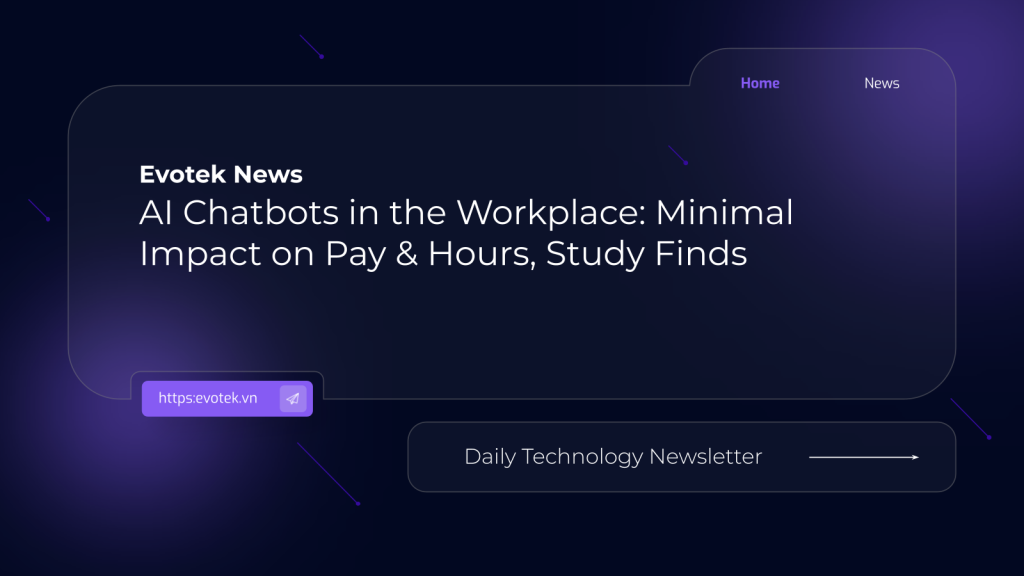Despite widespread adoption, AI chatbots haven’t revolutionized the workplace regarding employee earnings or hours worked, according to a recent study.
A National Bureau of Economic Research (NBER) working paper analyzed data from 7,000 workplaces in Denmark, revealing that while AI tools saved employees an average of 3% of their time, only a fraction of productivity gains translated into higher paychecks – between 3% and 7%.
The study, conducted by economists Anders Humlum and Emilie Vestergaard, examined 25,000 workers in roles expected to be most affected by AI, including accountants, customer support, IT specialists, and journalists. The research leveraged detailed Danish records to anonymously link survey responses with actual pay and hours.
While AI adoption has been rapid, mirroring the rise of the PC, its economic impact on individual workers remains surprisingly small. The study suggests that the benefits of AI, such as drafting emails or coding, might not always lead to increased productivity or higher compensation.
“AI chatbots have had no significant impact on earnings or recorded hours in any occupation,” the economists concluded. The time saved by employees using AI was often reallocated to other tasks, including AI-related tasks like editing AI-generated content or adapting to new challenges such as preventing students from using AI to cheat.
One factor influencing the limited impact is the lack of widespread employer buy-in and inconsistent employee training. Many employees are using AI tools without formal encouragement or clear guidelines, hindering their ability to negotiate for increased compensation based on productivity gains.
These findings align with other recent indications that the potential of AI may have been overhyped. An IBM survey, for example, found that only 25% of AI projects deliver the promised return on investment, with corporate FOMO being a primary driver of adoption.
Nobel laureate Daron Acemoglu estimates AI’s productivity boost at 1.1% to 1.6% of GDP over the next decade, a significant but more realistic figure than some overly optimistic predictions. He emphasizes the importance of organizational adjustments, training, and complementary investments to unlock the true potential of AI.
Humlum and Vestegaard’s research supports this, highlighting that greater productivity gains are observed when employers actively encourage AI use and provide adequate training.
The authors suggest that the impact of AI may simply require more time to materialize, drawing parallels to the Industrial Revolution, which took decades to fully transform society and the workplace.
“It took a couple of decades to see that we can have an assembly line powered by electricity instead of having everything run centrally via a steam engine,” Humlum said.

 日本語
日本語 한국어
한국어 Tiếng Việt
Tiếng Việt 简体中文
简体中文